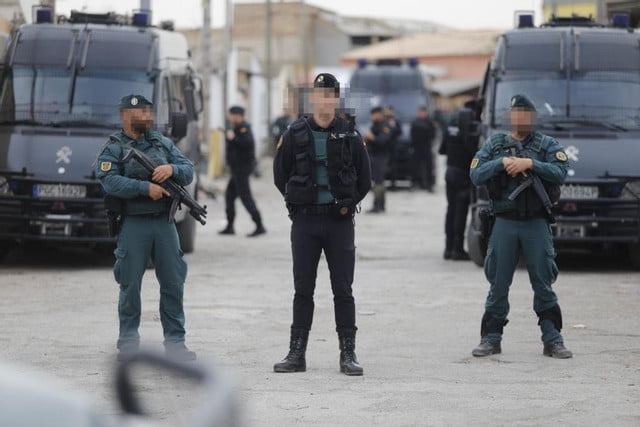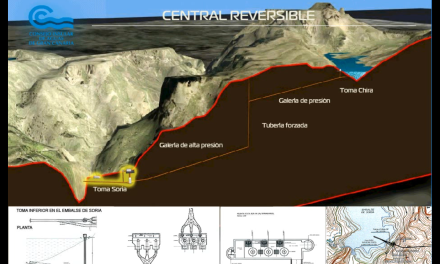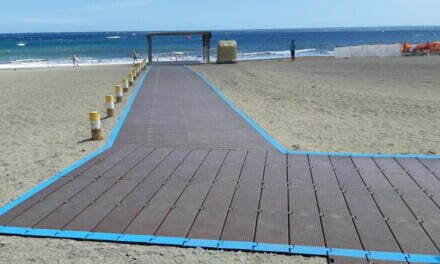The Guardia Civil’s GRS Reserve and Security Group number 8 have been deployed once more to Gran Canaria from Tenerife, to provide support to Mogán Local Police on the south of the island, following new incidents in Mogán over the last week. The Town Council requested the deployment, despite the current mayor only last Friday announcing that there had been a clear reduction in problems within complexes and that: “In the municipality the incidence rate has dropped and that is palpable in the population”.
The GRS are thought to be returning to assist with the gradual transfer of migrants, who have temporarily been hosted in otherwise empty hotels, now heading to special camps set up for the purpose, which led to small protests and rising fear among the migrant population. A recent increase in altercations among unaccompanied migrant minors, over the last week, has led to at least one injury and four suspected troublemakers being arrested, including one adult male who had misrepresented himself as being younger than 18 years of age. This has led to an increase in expressions of fear from local residents and as a precaution the Guardia Civil redeployment of this specialist reserve force to ensure security is maintained on the streets of Gran Canaria.
The specialist Reservation and Security Group have returned to the municipality of Mogán less than two weeks after their departure, as incidents classified as serious or very serious have been triggered, it was thought, by young migrants temporarily sheltered in tourist accommodation complexes. Many individuals who have been vocally against the presence of migrants in what would usually be tourist complexes have said that they did not feel safe unless the paramilitary Guardia Civil agents were visible in their neighbourhoods and on their streets. Reported incidents remain generally low however.
The Guardia Civil redeployment of 21 troops from the GRS will help to calm feelings of insecurity which, despite altercations appearing to have only occurred among the migrant populations themselves, have led to claims that the problems being experienced are becoming more frequent and less isolated, and so this specialised unit is being returned to the area to contribute to the eradication of undesirable behaviour and detection of troublemakers themselves, to help guarantee citizen security.
The GRS spent two weeks in Mogán, before being returned to base, and that is thought by some to have contributed to a reduction the reported incidence rate, though those few incidents that did occur have rarely required their presence, the perception was that of professional security forces policing the streets helped. Their first deployment to Gran Canaria also coincided with an increase in xenophobic hate speech and “credible threats” of violence aimed at the migrants themselves. Recent incidents, such as the vandalising of two hotel rooms and a communal area that occurred in Puerto Bello complex last Monday, have led to police using riot shields, and in full protective gear, entering that complex to apprehend suspected troublemakers, leading to the four arrests earlier this week. GRS8 are more specifically trained in such action.
The Canary Islands Government currently have in their charge, across the archipelago, more than 2,600 migrant minors, just over 2,000 of whom hold no identifying documentation and so therefore, by law, must have their ages medically verified. On Monday, prior to the Puerto Bello altercation, the Regional Government’s Child Services department had already announced that they were prioritising age-determination bone tests for up to 300 individuals, accommodated across various centres on Gran Canaria, and who are suspected to not be children at all, but in fact adults over the age of 25. The government admitted that anything up to 95% of all the altercations in their accommodation centres were suspected to be due to these individuals and so the urgent verification of their true ages was now seen as a first priority moving forward.
Local residents around the Puerto Bello complex agree that there were very few if any disturbances coming from that particular complex until the last two weeks, when, according to several residents and at least one business owner, the “atmosphere started to change” it is thought coinciding with some new arrivals, following a well publicised altercation at another hotel accommodating minors, who appear to have now starred in at least two or three major altercations at the temporary facility.
This Guardia Civil redeployment will certainly provide additional policing on Gran Canaria, particularly during this current phase of transfers out of tourist accommodations and into recently constructed camps at military facilities both on this island and on Tenerife. It is not yet clear how necessary these paramilitaries will be to general control of the migrant population, but certainly lots of individual residents who have said they do not feel safe will be relieved to see them in action. They will undoubtedly monitor and assess the situation and return to base once they feel their presence is no longer required, so as to return to their other duties and ongoing activities.











